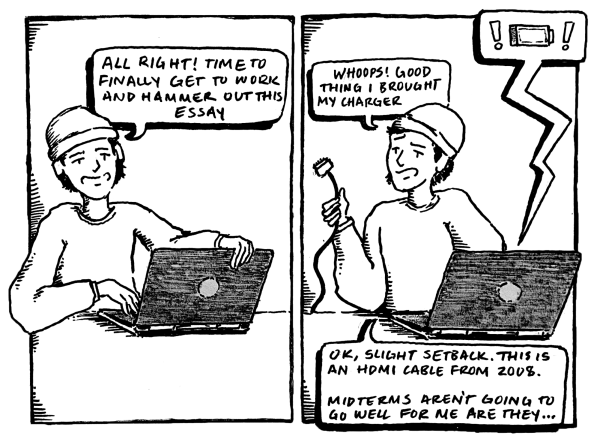Current Facilities Don’t Meet Accessibility Needs
This article is part of the Review’s Student Senate column. In an effort to increase communication and transparency, student senators will provide personal perspectives on recent events on campus and in the community
Since publishing her article “Inadequate Facilities Unsafe, Inaccessible for Disabled Students,” (The Oberlin Review, April 19, 2019) first-year Zoe Luh has been pursuing safe housing for next year. In her search to get necessary accommodations, she has spent the majority of her energy and time on research and meetings regarding housing. Luh’s search to get safe housing has taken a significant toll on her classwork as well as mental, physical, and social health.
The Oberlin administration needs to recognize the harm they inflict on disabled students by not giving us the accommodations we require. By failing to meet our needs, they force students to use their energy to gain basic rights on top of, and often instead of, taking care of ourselves as students. Over the last few weeks, Luh has worked with Student Senate — particularly EmmaLia Mariner — to gather information about mold on campus. We wish to update our community with the information that we have gathered.
In many discussions about supporting disabled students in Oberlin, the Americans with Disabilities Act is generally accepted as the basis of all accommodations. However, the ADA is flawed, and protections from discrimination based on mold contaminants are not included in this act. Any accommodations in higher education have to pass the subjective measure of being a “reasonable accommodation,” which may justify Oberlin’s resistance to remedying accommodation requests. In fact, there are no federal standards for testing, analyzing, and remedying mold contamination despite their danger to all people and particularly people with auto-immune disorders, chronic illnesses, and asthma. Instead, these protections are established at the state level and by the environmental consulting industry.
People who are denied accessible housing based on a mold-sensitive disability can appeal to the Ohio Civil Rights Commission in a claim of housing discrimination.
Complications and barriers with disability accommodations for living spaces have been problematic for many years in Oberlin, and disabled students have been bringing these issues to the forefront. An example is the article “ADA Compliance Necessary to Support Disabled Students” (The Oberlin Review, December 9, 2016) by Taylorlyn Stephan, OC ’17.
There are at least 16 floors of residential dorms on campus that cannot be accessed without the use of stairs, which displays the most obvious and visible barriers on campus for physically disabled people. Under the ADA, it is legal for these spaces to exist as long as people who appeal for accommodations are given an accessible space to live. Otherwise, the school does not have any responsibility to ensure that they can get to their friends’ rooms or live in a themed or identity-based hall or dorm. A number of students decide to deal with the inaccessible buildings to be part of identity-affirming or theme-based communities. However, that is not always an option because it is too dangerous or painful.
There are many reasons why Oberlin’s dorms are inaccessible. The first is financial, the second is age, and the third is neglect. It is no secret that Oberlin College is contending with an uncertain future, including the projection that if no actions are taken the budget deficit would reach $52 million by 2024. Even as Oberlin’s annual expenditures include $6.1 million dedicated to facilities maintenance, spaces on campus remain unsafe for students. This has incredible implications on Oberlin’s substantial level of deferred maintenance.
Furthermore, many buildings — such as Johnson House and Talcott Hall — are too old for accessibility features, such as elevators or personal AC units, to be viable architecturally. Finally, for access needs such as auto-immune disorders, chronic illness, and asthma, lack of consistent maintenance of a dorm — such as swift response to a leak — can cause even some of the newest dorms to become inaccessible throughout the year.
The first draft of the AAPR recommendations does not include any language about prioritizing disability access. Mariner has reached out to AAPR to point out this gap and has been told that they will include disability access explicitly alongside their other priorities of environmental sustainability and reduction of long-term costs.
The AAPR steering committee agreed that “it is certainly appropriate and worthwhile for the report to explicitly integrate goals related to accessibility within the report and we will certainly do so.” On behalf of disabled Oberlin community members and guests, we hope that the implementation process will take disability access as seriously as we do. Disability is not optional, so accessibility shouldn’t be either.


